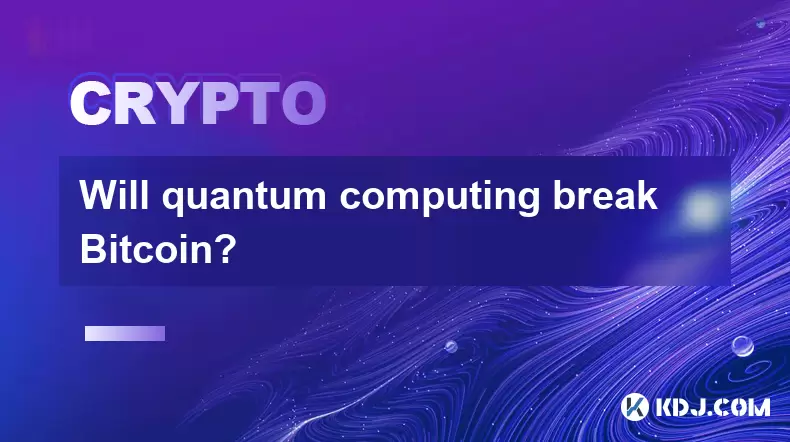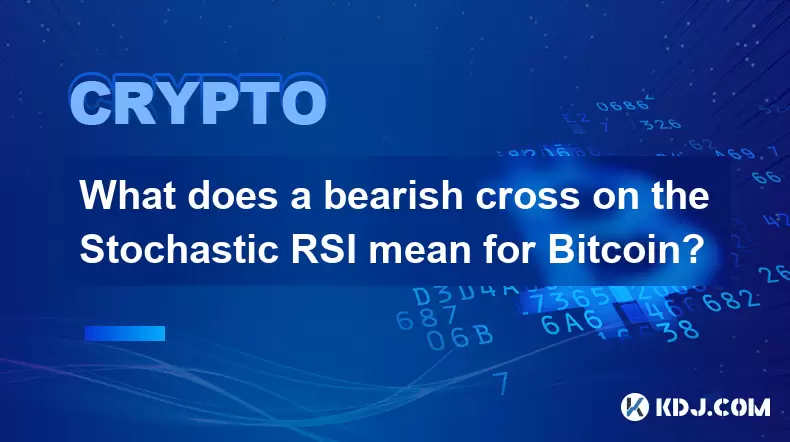-
 Bitcoin
Bitcoin $108,338.0981
-0.13% -
 Ethereum
Ethereum $2,566.4077
1.16% -
 Tether USDt
Tether USDt $1.0001
-0.01% -
 XRP
XRP $2.2841
-2.59% -
 BNB
BNB $658.5241
-0.17% -
 Solana
Solana $150.3819
-1.08% -
 USDC
USDC $0.9999
-0.01% -
 TRON
TRON $0.2864
-0.24% -
 Dogecoin
Dogecoin $0.1694
0.24% -
 Cardano
Cardano $0.5813
-0.72% -
 Hyperliquid
Hyperliquid $37.8292
-4.60% -
 Bitcoin Cash
Bitcoin Cash $503.3593
1.69% -
 Sui
Sui $2.8784
-0.69% -
 Chainlink
Chainlink $13.4784
-0.43% -
 UNUS SED LEO
UNUS SED LEO $9.0793
-0.27% -
 Stellar
Stellar $0.2537
-0.41% -
 Avalanche
Avalanche $18.0047
-0.23% -
 Shiba Inu
Shiba Inu $0.0...01181
1.56% -
 Hedera
Hedera $0.1608
0.49% -
 Toncoin
Toncoin $2.7568
-0.93% -
 Litecoin
Litecoin $86.4121
-0.20% -
 Monero
Monero $313.7273
-0.86% -
 Polkadot
Polkadot $3.3715
-0.66% -
 Dai
Dai $1.0001
0.01% -
 Ethena USDe
Ethena USDe $1.0004
0.03% -
 Bitget Token
Bitget Token $4.2902
-0.54% -
 Uniswap
Uniswap $7.5361
2.73% -
 Aave
Aave $285.6090
-0.55% -
 Pepe
Pepe $0.0...09958
0.28% -
 Pi
Pi $0.4560
-0.65%
Will quantum computing break Bitcoin?
2025/07/08 23:00

Understanding the Basics of Quantum Computing
Quantum computing is a rapidly evolving field that leverages the principles of quantum mechanics to perform computations at speeds unattainable by classical computers. Unlike traditional computers, which use bits (0s and 1s), quantum computers use qubits, which can exist in multiple states simultaneously due to superposition. This allows them to process vast amounts of data in parallel, potentially solving complex problems much faster than classical systems.
One of the most significant implications of this technology lies in its potential to break cryptographic algorithms currently used in many digital systems, including Bitcoin's encryption protocols. The concern stems from the fact that certain types of encryption, such as RSA and ECC (Elliptic Curve Cryptography), could be vulnerable to attacks using Shor’s algorithm, a quantum algorithm capable of efficiently factoring large numbers — something classical computers cannot do within a feasible timeframe.
How Bitcoin Uses Cryptography
Bitcoin relies heavily on public-key cryptography, specifically Elliptic Curve Digital Signature Algorithm (ECDSA), to secure transactions and ensure ownership of coins. Each Bitcoin address is derived from a private key, which must remain secret. If someone were to obtain your private key, they could control the associated funds.
The security of Bitcoin hinges on the computational difficulty of deriving a private key from a public key, which is considered practically impossible with current technology. However, quantum computers have the theoretical capability to reverse-engineer private keys from public keys using Shor’s algorithm, thereby compromising wallet security if no mitigations are in place.
Current Threat Level of Quantum Computing to Bitcoin
As of now, practical quantum computers capable of breaking ECDSA do not exist. Most existing quantum machines are noisy intermediate-scale quantum (NISQ) devices, meaning they lack the number of error-corrected qubits required to run Shor’s algorithm effectively on the size of numbers used in Bitcoin.
For example, breaking a 256-bit elliptic curve would require thousands of logical qubits, while today’s most advanced quantum processors only offer a few hundred physical qubits — and even fewer error-corrected ones. Therefore, the immediate threat to Bitcoin is minimal, but long-term planning for post-quantum security is prudent.
What Would Happen If Quantum Computers Broke Bitcoin?
If a quantum computer successfully broke Bitcoin’s encryption, it could:
- Derive private keys from public keys
- Forge transactions
- Double-spend coins
However, Bitcoin has several layers of protection. The public key is only revealed when a transaction is made from an address. If an address has only received funds (not sent any), the public key remains hidden, making it significantly harder for a quantum attack to succeed.
In theory, once a public key is exposed, a quantum attacker could calculate the private key and attempt to spend the funds before the legitimate owner does. But this scenario assumes both real-time access and extremely fast quantum computation, which is not yet feasible.
Possible Mitigations and Upgrades
To safeguard against future threats, the Bitcoin community could implement post-quantum cryptographic algorithms through a hard fork or soft fork upgrade. Some proposed alternatives include:
- Lamport signatures, which are one-time use and resistant to quantum attacks
- Hash-based signatures, such as XMSS and SPHINCS+
- Lattice-based cryptography, which offers robustness against known quantum algorithms
These methods are still under research and development, and integrating them into Bitcoin would require extensive testing and consensus among developers and miners. Importantly, any change must maintain backward compatibility and avoid disrupting the decentralized nature of the network.
Impact on Mining and Proof-of-Work
While the primary concern is around transaction security, another aspect is mining. Bitcoin uses the SHA-256 hashing algorithm for proof-of-work, which is also a target for quantum advantage. Grover’s algorithm, a quantum search algorithm, could theoretically reduce the time needed to find a valid hash.
However, even with Grover’s speedup, the mining difficulty adjustment mechanism in Bitcoin would likely counterbalance any gains, ensuring that block times remain stable. Thus, quantum mining dominance is unlikely unless quantum hardware achieves exponential improvements over ASICs, which is not expected in the near term.
Frequently Asked Questions
1. Can quantum computers mine Bitcoin faster?
While quantum computers might offer some efficiency improvements via Grover’s algorithm, the Bitcoin protocol adjusts mining difficulty automatically, which would negate any quantum speed advantage in practice.
2. Are there quantum-resistant cryptocurrencies already?
Yes, some newer cryptocurrencies, like Quantum Resistant Ledger (QRL), are designed with post-quantum signature schemes from the ground up, aiming to withstand quantum attacks without requiring future upgrades.
3. Should I move my Bitcoin to a new quantum-safe wallet?
Unless advised by core developers after a major security update, moving funds unnecessarily increases exposure to risks. Current wallets are safe as long as private keys remain uncompromised and addresses aren’t reused.
4. How long until quantum computers threaten Bitcoin?
Most experts estimate that functional, large-scale quantum computers capable of breaking ECDSA are at least a decade away, assuming continued progress in quantum error correction and qubit scalability.
免責聲明:info@kdj.com
所提供的資訊並非交易建議。 kDJ.com對任何基於本文提供的資訊進行的投資不承擔任何責任。加密貨幣波動性較大,建議您充分研究後謹慎投資!
如果您認為本網站使用的內容侵犯了您的版權,請立即聯絡我們(info@kdj.com),我們將及時刪除。
- Kraken,後機翼和Memecoins:狂野前往新加坡大獎賽!
- 2025-07-09 00:50:12
- Cronos SkyOlocket:解碼CRO的加密速度的原因
- 2025-07-09 01:30:12
- 以太坊的華爾街Love&Ruvi AI的審計集會:加密雞尾酒
- 2025-07-09 00:55:12
- 具有增長潛力的加密硬幣:精明投資者的首選
- 2025-07-09 01:35:13
- Onyxcoin(XCN)vs. Solana(Sol):加密遊戲中的一個有希望的賭注?
- 2025-07-09 00:30:12
- CoreWeave的大膽下注:AI如何重塑比特幣採礦
- 2025-07-09 00:30:12
相關知識

How to identify a volatility contraction pattern on Bitcoin using indicators?
2025-07-07 07:28:27
<h3>What is a Volatility Contraction Pattern in Bitcoin Trading?</h3><p>A volatility contraction pattern refers to a phase where the...

Do indicators work better on a logarithmic or linear scale for Bitcoin's long-term chart?
2025-07-08 13:42:39
<h3>Understanding Chart Scales in Cryptocurrency Trading</h3><p>In cryptocurrency trading, particularly for analyzing Bitcoin's long...

What is the Woodies CCI indicator and can it be used for Bitcoin?
2025-07-04 17:14:44
<h3>Understanding the Woodies CCI Indicator</h3><p>The Woodies CCI indicator is a variation of the traditional Commodity Channel Ind...

How to use indicators to trade the opening range breakout for Bitcoin CME futures?
2025-07-05 19:35:41
<h3>What Is the Opening Range Breakout Strategy?</h3><p>The opening range breakout (ORB) strategy is a popular trading technique use...

How to use the Relative Vigor Index (RVI) for Bitcoin trading?
2025-07-07 14:00:30
<h3>Understanding the Relative Vigor Index (RVI)</h3><p>The Relative Vigor Index (RVI) is a technical analysis tool used to assess t...

What does a bearish cross on the Stochastic RSI mean for Bitcoin?
2025-07-05 19:18:14
<h3>Understanding the Stochastic RSI Indicator</h3><p>The Stochastic RSI (Relative Strength Index) is a momentum oscillator used in ...

How to identify a volatility contraction pattern on Bitcoin using indicators?
2025-07-07 07:28:27
<h3>What is a Volatility Contraction Pattern in Bitcoin Trading?</h3><p>A volatility contraction pattern refers to a phase where the...

Do indicators work better on a logarithmic or linear scale for Bitcoin's long-term chart?
2025-07-08 13:42:39
<h3>Understanding Chart Scales in Cryptocurrency Trading</h3><p>In cryptocurrency trading, particularly for analyzing Bitcoin's long...

What is the Woodies CCI indicator and can it be used for Bitcoin?
2025-07-04 17:14:44
<h3>Understanding the Woodies CCI Indicator</h3><p>The Woodies CCI indicator is a variation of the traditional Commodity Channel Ind...

How to use indicators to trade the opening range breakout for Bitcoin CME futures?
2025-07-05 19:35:41
<h3>What Is the Opening Range Breakout Strategy?</h3><p>The opening range breakout (ORB) strategy is a popular trading technique use...

How to use the Relative Vigor Index (RVI) for Bitcoin trading?
2025-07-07 14:00:30
<h3>Understanding the Relative Vigor Index (RVI)</h3><p>The Relative Vigor Index (RVI) is a technical analysis tool used to assess t...

What does a bearish cross on the Stochastic RSI mean for Bitcoin?
2025-07-05 19:18:14
<h3>Understanding the Stochastic RSI Indicator</h3><p>The Stochastic RSI (Relative Strength Index) is a momentum oscillator used in ...
看所有文章

























































































